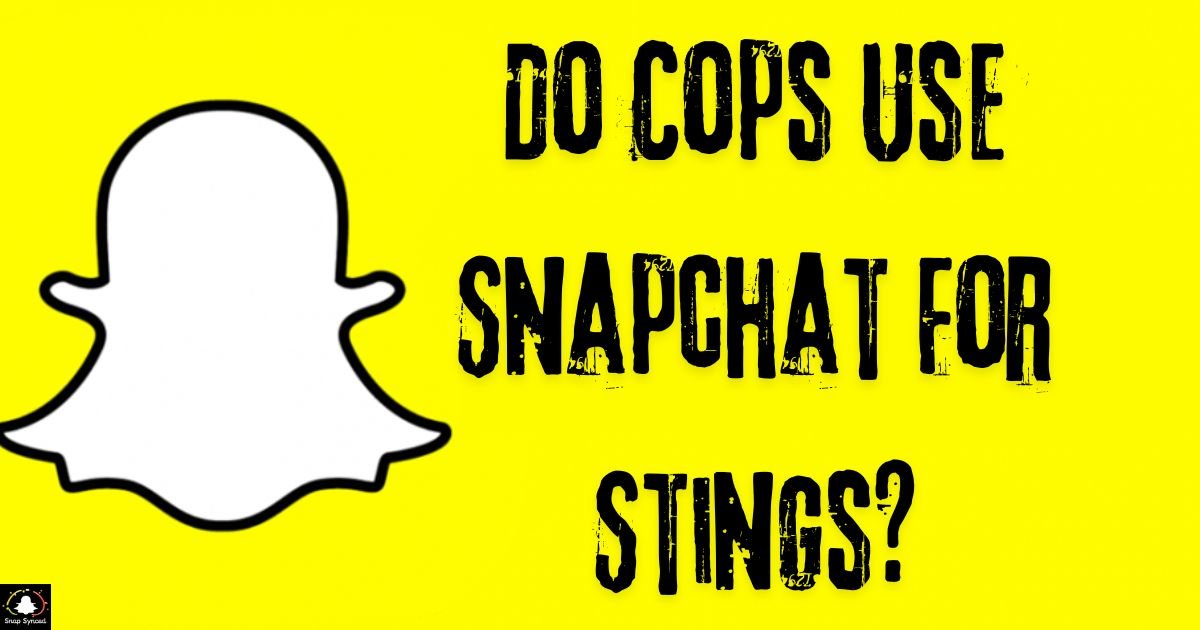In today’s digital age, law enforcement agencies are continually adapting to new technologies and social media platforms to combat crime. Snapchat, a popular messaging app known for its ephemeral nature, has raised questions about its use in police investigations and stings.
This article delves into the topic, exploring whether cops use Snapchat for stings, the legal and ethical considerations involved, and the potential implications for privacy and civil liberties.
Introduction to Snapchat
Snapchat, launched in 2011, quickly gained popularity among younger demographics for its unique features, including disappearing messages, stories, and filters. With over 500 million daily active users as of 2021, Snapchat has become a significant player in the social media landscape.
Understanding Police Sting Operations
Police sting operations are covert operations designed to catch individuals engaged in illegal activities, such as drug dealing, prostitution, or solicitation. These operations often involve undercover officers posing as potential buyers or sellers to gather evidence and make arrests.
Snapchat and Law Enforcement

While Snapchat’s ephemeral nature may seem at odds with traditional police investigations, law enforcement agencies have recognized its potential as a tool for surveillance and evidence gathering.
The extent to which cops use Snapchat for stings varies depending on jurisdiction, legal constraints, and ethical considerations. By the way, have you ever wondered how to add an Instagram post to your Snapchat story?
Legal and Ethical Considerations
The use of Snapchat by law enforcement raises several legal and ethical questions, including:
Privacy Concerns: Users may feel their privacy is violated if their Snapchat messages or content are monitored or intercepted by law enforcement without their knowledge or consent.
Data Retention: Snapchat’s disappearing messages feature poses challenges for law enforcement agencies seeking to preserve evidence for prosecution. Unlike traditional communication methods like email or text messaging, Snapchat messages are designed to vanish after being viewed.
Search Warrants: Many jurisdictions require law enforcement officers to obtain search warrants before accessing private communications on social media platforms like Snapchat. The legal landscape surrounding digital privacy is complex and subject to interpretation.
Case Studies
Several high-profile cases have highlighted the use of Snapchat by law enforcement in sting operations:
- In 2017, the FBI used Snapchat to apprehend a California man suspected of distributing drugs. Undercover agents posed as buyers and communicated with the suspect through the app, ultimately leading to his arrest.
- In another case, police in Florida used Snapchat to bust a drug trafficking ring operating in the area. Officers monitored the suspects’ Snapchat accounts and gathered evidence of drug sales, leading to multiple arrests and convictions.
Challenges and Limitations

| Challenge | Description |
| Technical Limitations | Snapchat’s encryption and data deletion features hinder evidence collection |
| Jurisdictional Issues | Difficulty investigating crimes that cross jurisdictional boundaries |
| Resource Constraints | Lack of resources and expertise for effective social media investigations |
| Legal Complexity | Complex legal landscape surrounding digital privacy and evidence gathering |
| Privacy Concerns | Users may feel privacy is violated by law enforcement monitoring |
Using Snapchat for law enforcement purposes presents challenges and limitations. It requires careful consideration of legal, technical, and ethical factors.
Future Implications
As technology continues to evolve, the use of Snapchat and other social media platforms by law enforcement is likely to increase. This raises important questions about privacy, civil liberties, and the balance between security and individual rights.
FAQ’s
How do law enforcement agencies use Snapchat in sting operations?
Law enforcement may monitor suspects’ Snapchat accounts, pose as buyers or sellers, and gather evidence of illegal activity.
Is it legal for police to use Snapchat for sting operations?
The legality depends on jurisdiction and adherence to legal procedures such as obtaining search warrants.
What challenges do police face when using Snapchat for stings?
Technical limitations, jurisdictional issues, and resource constraints can hinder effective investigations.
Conclusion
Law enforcement agencies may use Snapchat for sting operations and investigations. The extent of its use and the legal and ethical considerations involved vary widely.
As technology advances, society grapples with issues of privacy and surveillance. It’s essential to have robust legal frameworks and oversight mechanisms to ensure law enforcement’s use of social media respects individual rights and liberties.








